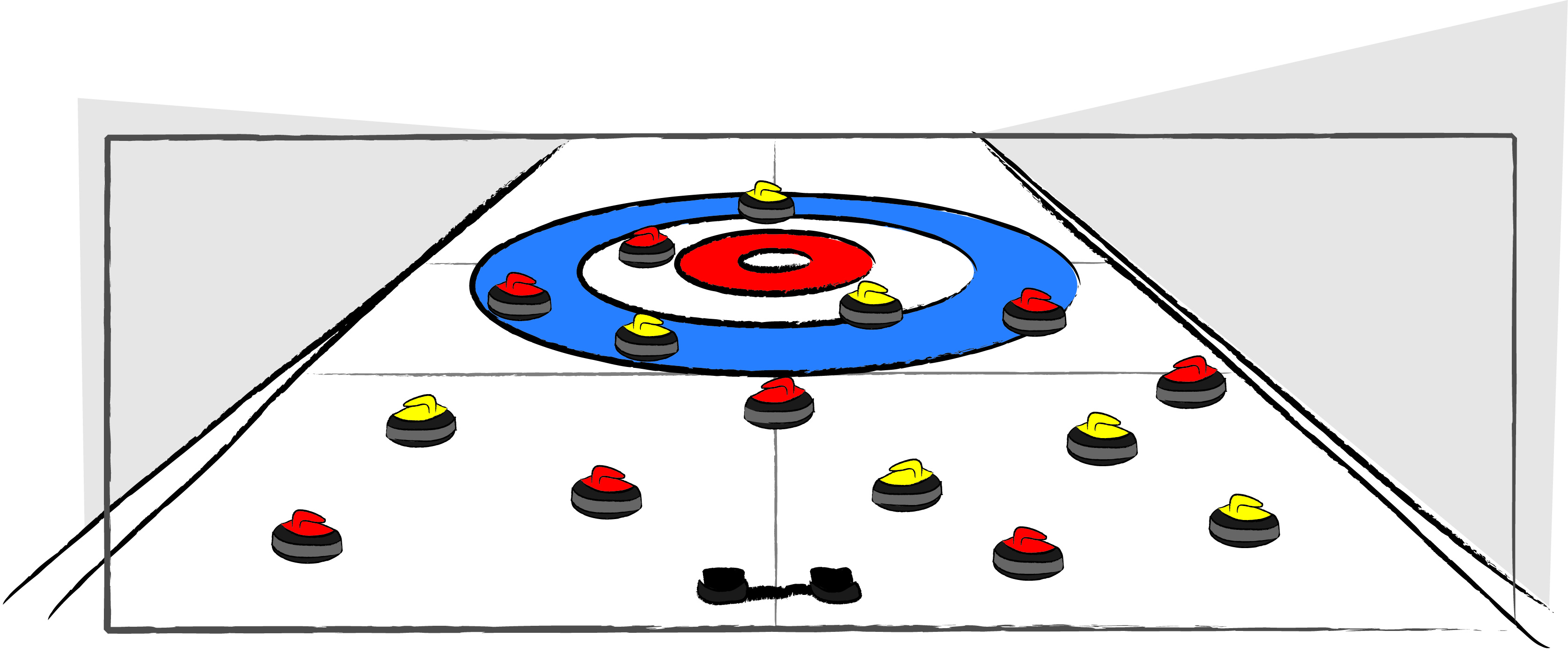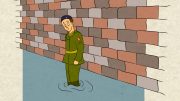The Canadian Curling Association (CCA) confirmed on Mar. 10 that the winner of the 2014 Tim Hortons Brier will receive an automatic berth into the 2015 event as Team Canada, just like the Scotties Tournament of Hearts has done since 1986. However, this is only one part of possibly the most drastic change in Canadian curling history.
It was announced in June, 2012 that with the addition of Northern Ontario in the Scotties, instead of one team representing both the Northwest Territories (NWT) and Yukon, each territory, including Nunavut for the first time, will have their own team starting in 2015.
Because of the additional number of entries, there will be a four-team pre-tournament beginning in 2015 to determine which team advances to the main event. In future years, the four teams will consist of the three who lost in the previous year’s qualifying round and the team who finished last in national championships the year before.
While a separate qualifying round may be the only way to accommodate 15 teams in the two events, it may also have adverse effects on the events themselves and curling in certain areas, especially the north.
Teams from each territory will eliminate the need for inter-territorial playdowns, which usually involve expensive travel costs. In fact, no teams from the Yukon sent teams to the NWT/Yukon playdowns this year (despite the cancelled women’s tournament being in Whitehorse). It will reduce the financial burden on the fledgling associations, but relegation only creates another barrier for curlers from those areas.
No direct entry into a national tournament may deter younger curlers from pursuing the sport. Thomas Scoffin, who represented the Yukon for six years at the M&M Meat Shops Canadian Juniors before skipping Alberta this year, said in an interview on the CCA’s website, “From personal experience, if that rule was in effect when I was first starting [competitive curling], I don’t think I would have had any opportunities, as our team wouldn’t have been strong enough to qualify. I recognize that it’s tough to find an inclusive format for everybody, but I would be concerned that it would deter [young curlers in the north] from starting to [curl] competitively.”
Development is needed for young curlers in the north, especially those from Nunavut who made their debuts in the Canadian Juniors this year. With no relegation, both teams surrendered as many as 20 points in their games. Future appearances will help Nunavut improve, but despite 14 years as a territory, they are not yet ready for the Brier or the Scotties.
Jamie Koe, who skipped the Territories in the Brier, echoed this sentiment.
“Nunavut is a long way from being anywhere in curling as the scores in the Canadian [Juniors] would tell you,” he told Sun Media. “I don’t think it was very well thought through by the CCA.”
Last year, the NWT Curling Association circulated a petition for the CCA to reverse its position on relegation, and the new format has also been frowned upon south of the 60th parallel.
“I can’t see it helping our province at all, in terms of keeping the interest of people who want to be involved in the game. I believe if it isn’t broken don’t fix it,” said former P.E.I. skip Kim Dolan.
The new qualifying procedures could end up forcing provinces to pay for the shortcomings of another team. For example, if relegation was in place for this year’s Scotties, Alberta, who finished 1-10, may have had to go through qualifying next year despite having seven of the top 12 teams in the country.
The CCA can claim that the new format creates “Equitable Opportunity to Access Canadian Championships,” but there is an exclusionary aspect to it. Some areas of the country will be at a lower tier than others, which will hurt national celebrations of a great sport and its development.
Newfoundland and Labrador skip Brad Gushue said it best: “What will all the fans do? If you don’t know if your province or territory is going to be there for the full Brier week [ . . . ] Look at the scene here with 10,000 fans in the stands and fans from every province in Canada. Why would you want to change this?”





